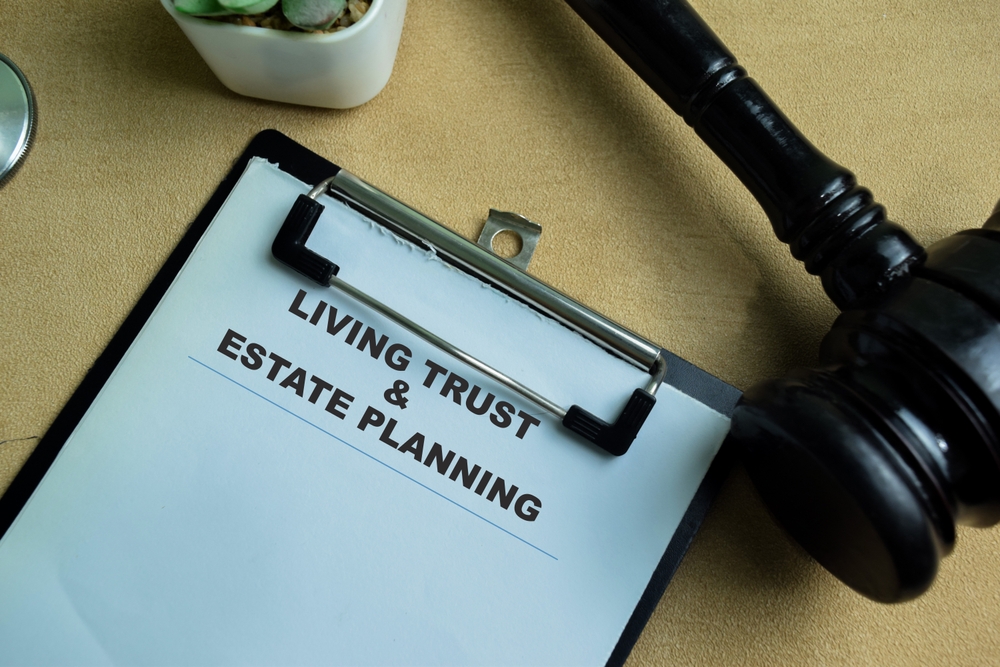
The financial intricacies of millennials have moved estate planning to the bottom of their list of priorities. People tend to avoid planning for wills and medical directives because they need to focus on their work responsibilities and on paying rent and student loan payments. Estate planning dangers persist because time has not brought them to a halt. Estate planning determines how money, health care choices, and the distribution of responsibilities will occur when someone loses the ability to make decisions. Time keeps advancing, even though people choose to disregard this situation.
1. “I Don’t Have Enough Assets to Plan Anything”
This excuse shows up often. Many millennials assume estate planning matters only once they reach some symbolic threshold of wealth. A house. A six-figure salary. Investments big enough to track in a spreadsheet.
The premise is flawed. Estate planning isn’t only for the wealthy. It manages whatever exists right now, even if that’s a checking account, a car, or digital assets that hold personal or financial value. More importantly, it sets up protections beyond money. Without basic documents, choices about medical care, guardianship, and account access fall into a legal void. Someone else steps in by default, not by design.
Skipping estate planning leaves gaps that courts must fill, often slowly. And cost doesn’t excuse delay. Many tools are inexpensive and straightforward. The risk comes from assuming “not enough” means “no plan needed.”
2. “I’m Young and Healthy, So There’s No Urgency”
Health doesn’t guarantee control. Accidents, sudden illness, or temporary incapacity can force decisions no one expects to face. When millennials rely on youth as a shield, they forget how systems react when paperwork is missing. Hospitals turn to next of kin who may not know their wishes. Banks freeze accounts until authority is proven. And families scramble.
Estate planning isn’t about predicting tragedy. It’s about refusing to leave crucial choices to chance. A health care directive and power of attorney take minutes to prepare. Those minutes can prevent weeks of confusion later.
3. “It Feels Too Morbid to Think About”
Death makes people flinch. Even practical conversations feel heavy. But avoiding discomfort doesn’t neutralize consequences. It only ensures that the same fears surface during a crisis instead of readiness.
Millennials often postpone estate planning because it forces them to confront what they’d rather not imagine. Yet the process can be straightforward. It doesn’t require dwelling on worst-case scenarios. It focuses on clarity. Who should make decisions? Who should manage accounts? Who should receive personal items that carry meaning?
The discomfort fades. The protection remains.
4. “My Family Will Figure It Out When the Time Comes”
Families rarely navigate these decisions smoothly. Assumptions collide. Memories of “what they would have wanted” differ. Quiet disagreements become legal battles, and even minor misunderstandings turn into resentment.
Estate planning spares families from that. A will, beneficiary designations, and clear instructions remove guesswork. They also reduce delays during probate and help avoid disputes about sentimental items that hold more emotional weight than financial value.
Expecting loved ones to simply improvise isn’t kindness. It’s pressure dressed up as optimism.
5. “I Don’t Understand How Any of This Works”
Estate planning can seem dense. Legal terms sound abstract until they’re needed. Many millennials freeze at the first unfamiliar phrase and postpone everything. But the confusion isn’t a barrier. It’s a starting point.
The core pieces are straightforward. A will distributes assets. A power of attorney authorizes someone to handle finances. A health care directive guides medical decisions. Beneficiary forms determine who receives accounts without going through probate. These tools work together to reduce uncertainty, and none require mastery of legal language to begin.
As millennials take on more financial responsibility, ignoring the mechanics of estate planning becomes riskier than learning the basics.
6. “I Don’t Have Kids Yet, So There’s Nothing to Plan”
Children often push people to act, but they aren’t the only reason to start. Millennials carry digital footprints, accounts, debts, and responsibilities that won’t clean themselves up. Someone will handle those tasks. The question is who.
Estate planning covers more than guardianship. It organizes digital access, appoints decision-makers, and gives structure to what happens with everything from pets to passwords. Planning without children in the picture allows flexibility instead of reaction.
7. “I’ll Do It Later When Life Settles Down”
Life rarely settles. Millennials move for work, switch careers, care for aging parents, or navigate unstable housing markets. Waiting for calm means waiting forever.
Estate planning doesn’t demand perfect timing. It only requires a starting point. Documents can be updated as circumstances shift. The biggest risk lies in assuming there will be a better moment, a clearer schedule, or a more stable life stage. There may not be.
Why Early Planning Creates Real Control
Estate planning enables millennials to establish their preferences, which will remain valid throughout their entire active life. The process safeguards personal decisions while minimizing the burden on family members and directing all assets to their designated destinations. Estate planning needs a specific order of steps to achieve completion. The system follows a defined operational framework. People need to create estate plans because they fully manage their financial affairs and personal matters.
The practice of delaying estate planning creates unnecessary dangers that could have been prevented. The early start to estate planning creates a flexible system that evolves rather than forcing people to act in emergencies.
What do you identify as your most difficult estate planning obstacle?
What to Read Next…
- Is Your Estate Plan Missing This One Crucial Document?
- 6 Outdated Estate Strategies That Are Now Riskier Than Doing Nothing
- Why Most Estate Plans Fail When The Family Needs Them Most
- 7 Estate Plan Updates That Must Be Made Before 2026
- What Are Estate Lawyers Warning Clients About in 2025?
The post 7 Excuses Millennials Use to Delay Estate Planning (and Why It’s Risky) appeared first on The Free Financial Advisor.







